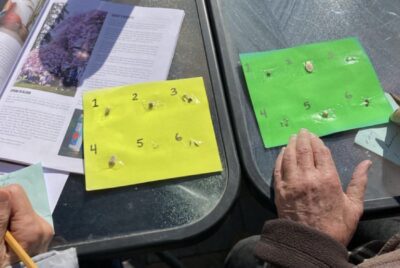RESEARCH
Studies Regarding the Influence of Therapeutic Horticulture on the Human-Nature Relationship and the Increase of Well-Being
Summary
This research paper explored the potential benefits of therapeutic horticulture (TH) for improving mental health. The study involved an experimental group that participated in a gardening program for two weeks, engaging in activities such as sowing, potting, and planting for four hours daily, except weekends. Meanwhile, there was also a control group that was simply monitored without participating in the gardening activities. The main goal was to see if gardening could help reduce depression and improve cognitive function among the participants.
After the two-week period, both the experimental and control groups were reassessed using the Beck Depression Inventory, and urine samples were collected for analysis. The results demonstrated that those who engaged in the gardening program showed significant improvements in their depression scores and cognitive function compared to the control group. The research thus suggests that gardening can have a positive impact on mental well-being.







